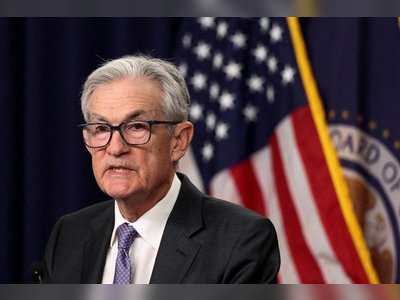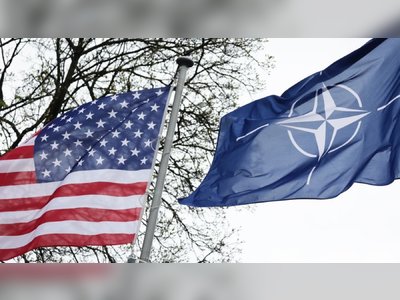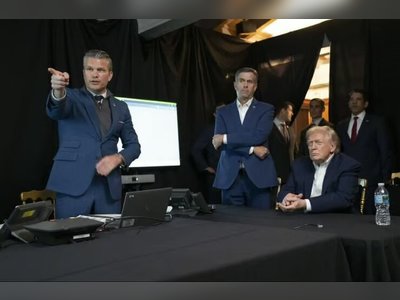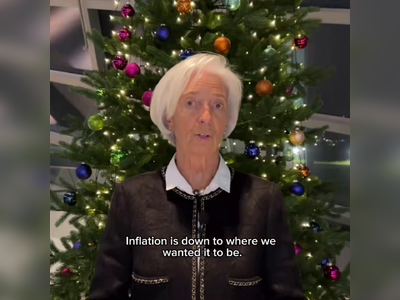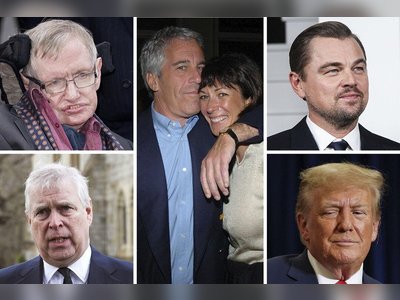
Germany at a Critical Juncture Ahead of Legislative Elections
Conservative opposition leads in polls as the AfD is expected to gain significant support amid a tense national atmosphere.
Parties in Germany are mobilizing their final resources ahead of crucial legislative elections scheduled for February 23, 2025. The conservative opposition, led by Friedrich Merz of the Christian Democratic Union (CDU), is currently favored to win, despite an anticipated surge in support for the far-right Alternative for Germany (AfD).
The election comes at a time when both Germany and Europe are grappling with announcements from the new Trump administration regarding the war in Ukraine and potential tariff increases, adding to the country's already tense political climate.
In recent weeks, Germany has experienced a series of deadly attacks that have shocked the public, including a violent incident on February 21, where a Spanish national was severely injured at the Holocaust Memorial in Berlin.
A suspect has been apprehended, and investigations are ongoing.
Germany's economy, the largest in Europe, continues to show signs of weakness, having faced two years of recession and challenges related to its industrial model, which will be a priority for the next government.
Friedrich Merz, a 69-year-old former corporate lawyer, is seeking to secure a strong enough result to negotiate from a position of strength for coalition talks, which are expected to be protracted.
Current polls indicate that Merz's CDU is projected to receive approximately 30% of the vote, necessitating alliances with other parties to form a government.
However, Merz has ruled out collaboration with the AfD, which is expected to nearly double its previous election score to around 20%.
He stated that significant divisions exist between the CDU and the AfD regarding economic and immigration policies.
As the electoral campaigns progress, debates have been marked by unprecedented polarization, influenced by current international events, particularly the ramifications of the early months of the Trump presidency.
The American administration's involvement in German politics has been noted, with both JD Vance, the U.S. Vice President, and billionaire Elon Musk, a Trump advisor, openly supporting the AfD, thereby increasing the party's visibility.
Demonstrations in Berlin are expected, with far-right supporters planning rallies while opposition groups mobilize against them.
The current political landscape has prompted German politicians to reconsider transatlantic relations in light of the significant shifts brought about by a second Trump presidency.
Chancellor Olaf Scholz, leading the Social Democratic Party (SPD), facing the danger of a historic electoral defeat, has reaffirmed his government's commitment to Ukraine's sovereignty and defended Germany's policy on freedom of expression, which has been criticized by U.S. authorities.
The SPD is currently forecasted to come in third with around 15% of the vote, relying on the estimated quarter of voters who remain undecided to boost their standing.
Merz has asserted the need for Germany to regain its leadership role in Europe in the face of challenges from the United States and geopolitical pressures.
He aims to establish a government by the end of April, contingent upon the performance of smaller parties in the legislative elections.
Should these smaller parties surpass the 5% threshold, they will gain representation in the Bundestag, complicating coalition formation for the larger parties.
The election comes at a time when both Germany and Europe are grappling with announcements from the new Trump administration regarding the war in Ukraine and potential tariff increases, adding to the country's already tense political climate.
In recent weeks, Germany has experienced a series of deadly attacks that have shocked the public, including a violent incident on February 21, where a Spanish national was severely injured at the Holocaust Memorial in Berlin.
A suspect has been apprehended, and investigations are ongoing.
Germany's economy, the largest in Europe, continues to show signs of weakness, having faced two years of recession and challenges related to its industrial model, which will be a priority for the next government.
Friedrich Merz, a 69-year-old former corporate lawyer, is seeking to secure a strong enough result to negotiate from a position of strength for coalition talks, which are expected to be protracted.
Current polls indicate that Merz's CDU is projected to receive approximately 30% of the vote, necessitating alliances with other parties to form a government.
However, Merz has ruled out collaboration with the AfD, which is expected to nearly double its previous election score to around 20%.
He stated that significant divisions exist between the CDU and the AfD regarding economic and immigration policies.
As the electoral campaigns progress, debates have been marked by unprecedented polarization, influenced by current international events, particularly the ramifications of the early months of the Trump presidency.
The American administration's involvement in German politics has been noted, with both JD Vance, the U.S. Vice President, and billionaire Elon Musk, a Trump advisor, openly supporting the AfD, thereby increasing the party's visibility.
Demonstrations in Berlin are expected, with far-right supporters planning rallies while opposition groups mobilize against them.
The current political landscape has prompted German politicians to reconsider transatlantic relations in light of the significant shifts brought about by a second Trump presidency.
Chancellor Olaf Scholz, leading the Social Democratic Party (SPD), facing the danger of a historic electoral defeat, has reaffirmed his government's commitment to Ukraine's sovereignty and defended Germany's policy on freedom of expression, which has been criticized by U.S. authorities.
The SPD is currently forecasted to come in third with around 15% of the vote, relying on the estimated quarter of voters who remain undecided to boost their standing.
Merz has asserted the need for Germany to regain its leadership role in Europe in the face of challenges from the United States and geopolitical pressures.
He aims to establish a government by the end of April, contingent upon the performance of smaller parties in the legislative elections.
Should these smaller parties surpass the 5% threshold, they will gain representation in the Bundestag, complicating coalition formation for the larger parties.


